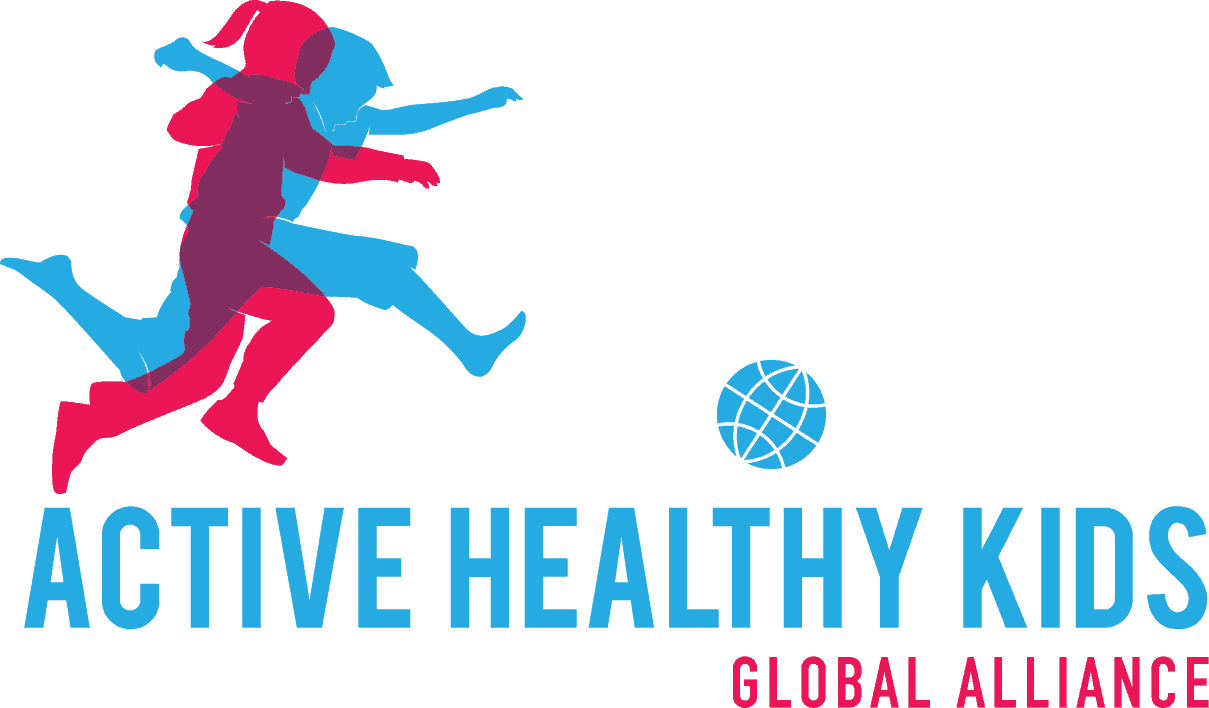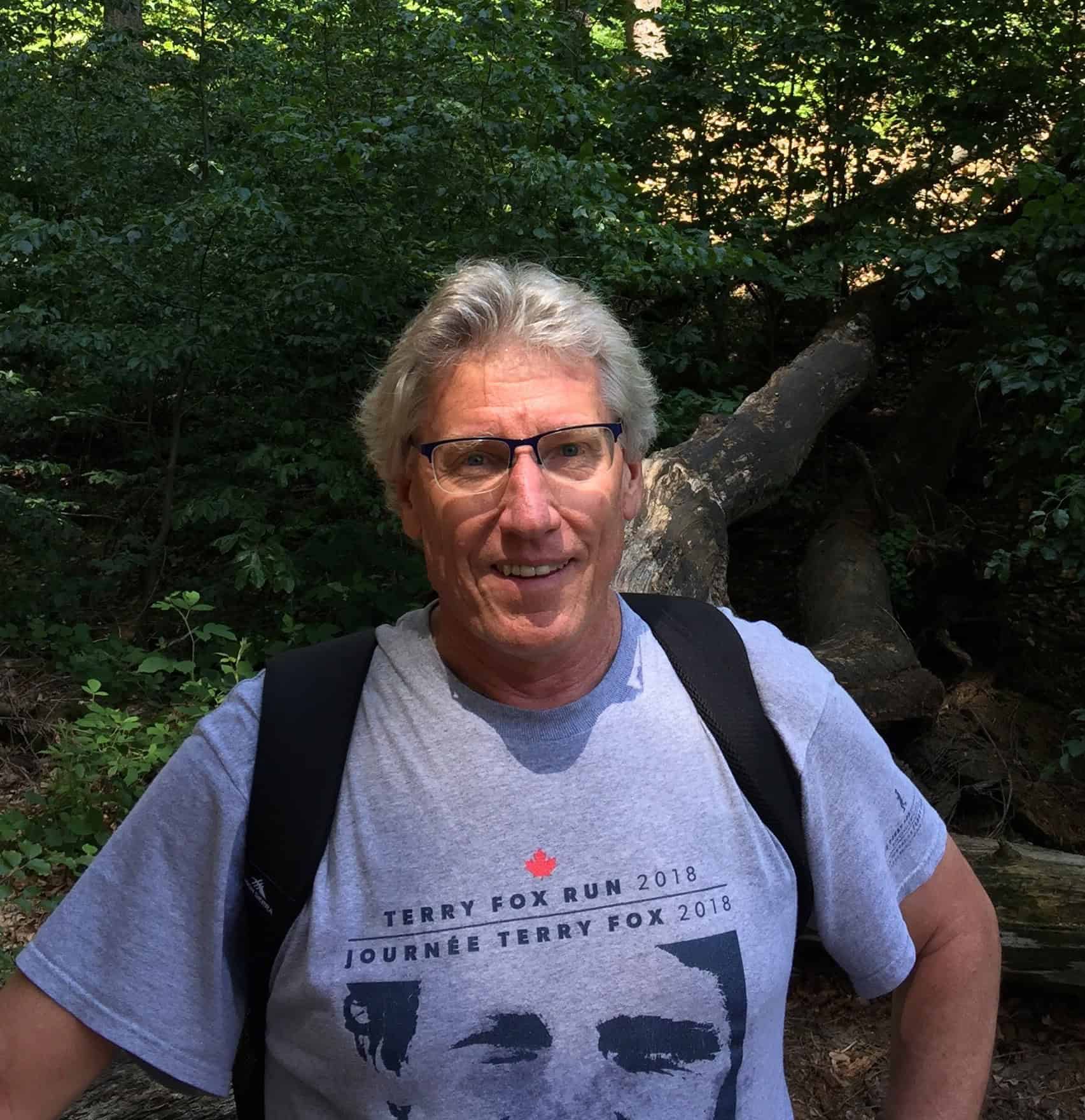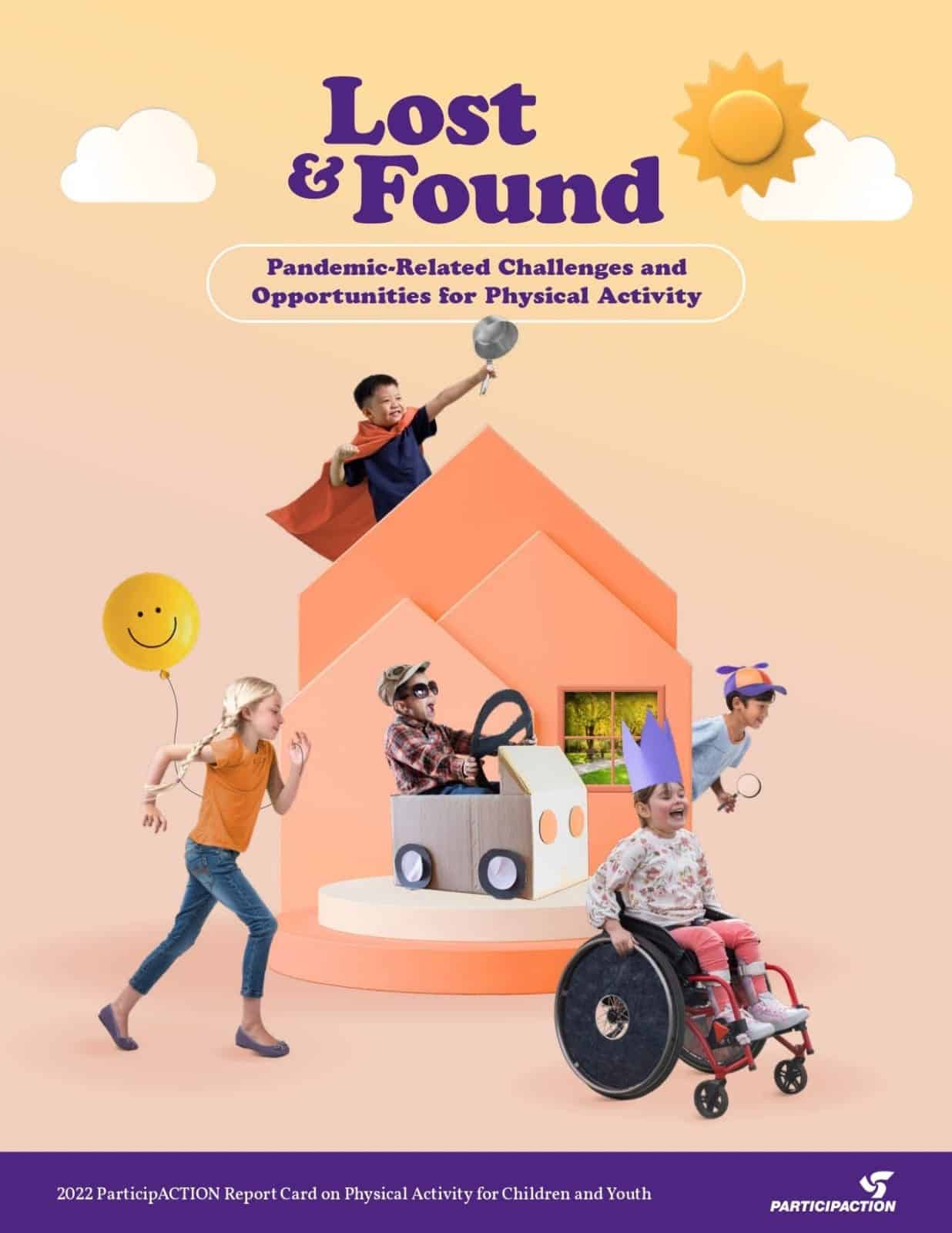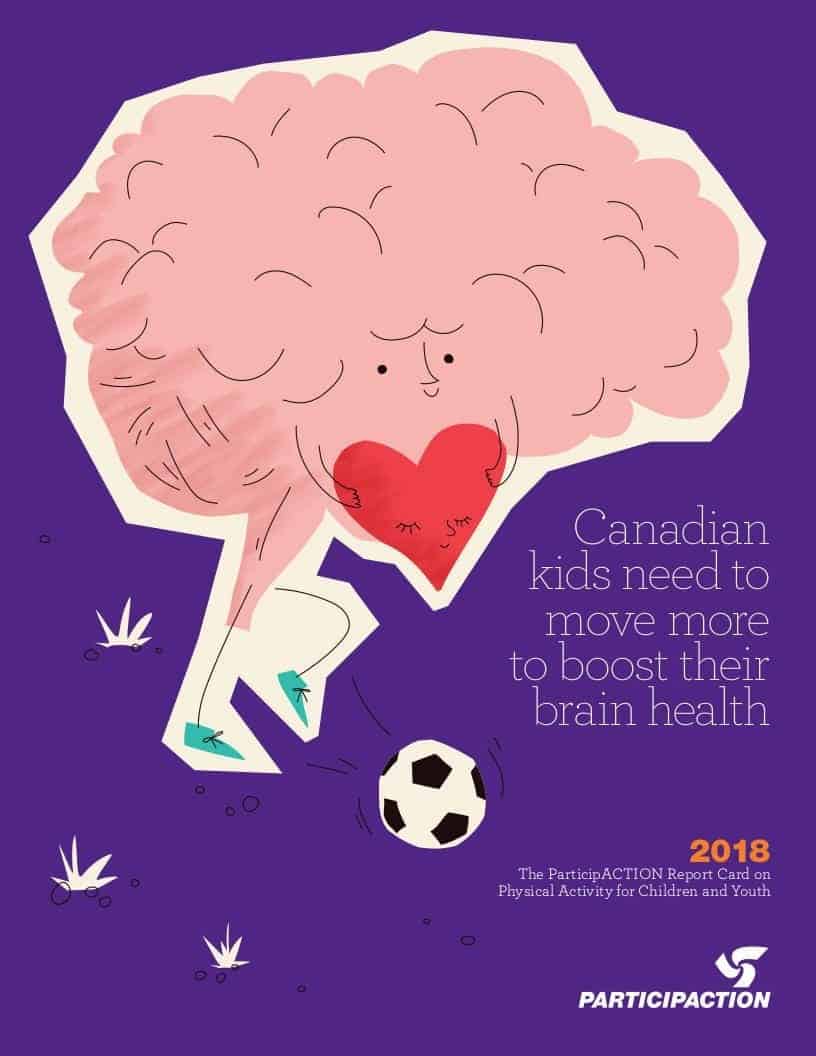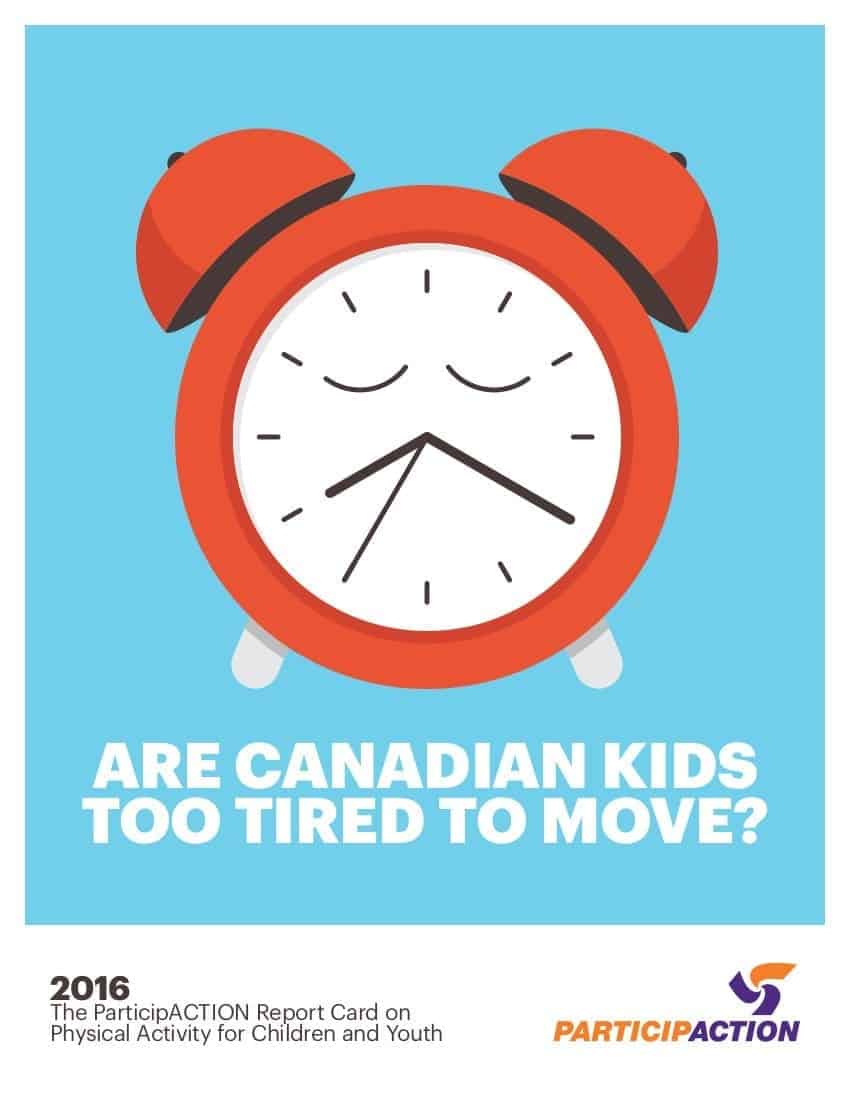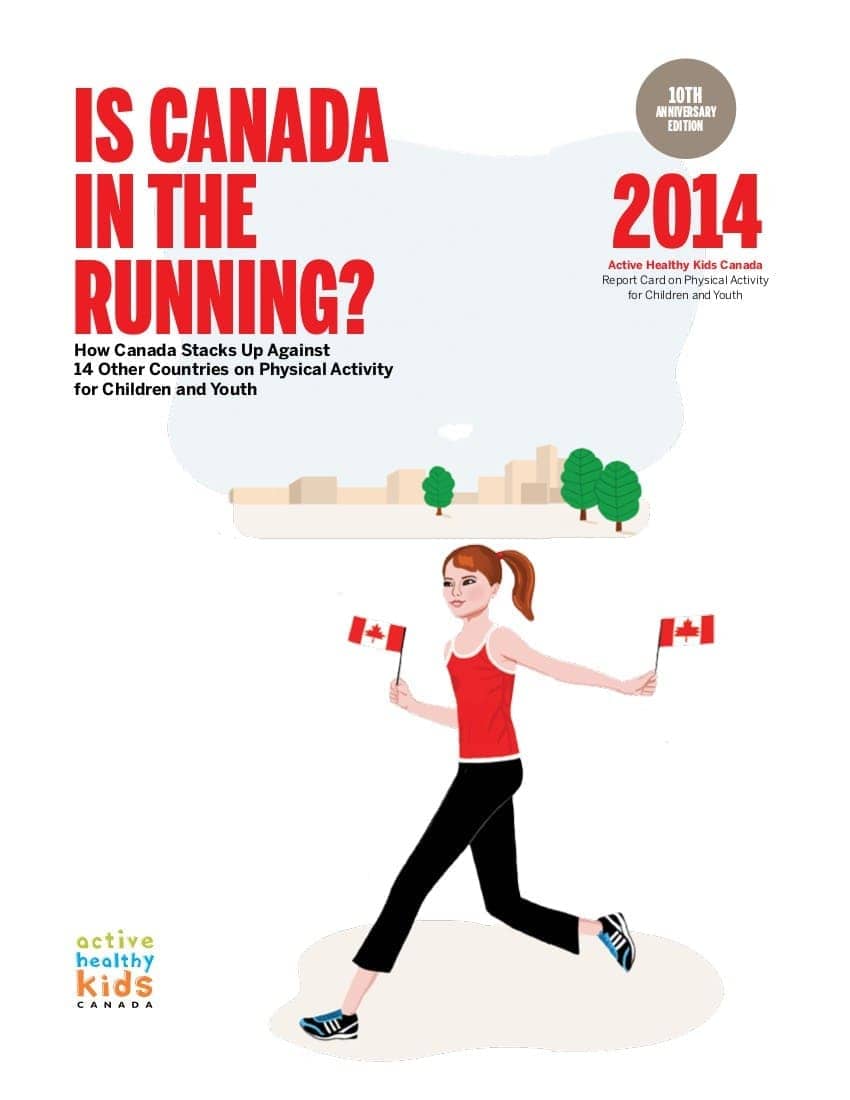
-
The Global Matrix 5.0
-
The Global Matrix 4.0
-
The Global Matrix 3.0
-
The Global Matrix 2.0
-
The Global Matrix 1.0

Report Card Leaders
Mark Tremblay, PH.D.
Professor Mark Tremblay has a Bachelor of Commerce degree in Sports Administration and a Bachelor of Physical and Health Education degree from Laurentian University. His graduate training was from the University of Toronto where he obtained his M.Sc. and Ph.D. from the Department of Community Health with a specialty in Exercise Science. Dr. Tremblay is a Senior Scientist with the Healthy Active Living and Obesity (HALO) Research Group at the Children’s Hospital of Eastern Ontario Research Institute and Professor of Pediatrics in the Faculty of Medicine, University of Ottawa. He is a Fellow of the Canadian Society for Exercise Physiology, Fellow of the American College of Sports Medicine, Fellow of the Canadian Academy of Health Sciences, President of the Active Healthy Kids Global Alliance, Founder of the Sedentary Behaviour Research Network, President of Outdoor Play Canada, and Adjunct/Visiting Professor at five other universities on four continents. Dr. Tremblay has published >600 scientific papers and book chapters in the areas of childhood obesity, physical activity measurement, exercise physiology, sedentary physiology, outdoor play and health surveillance. According to Scopus, his h-index is 106 and his published research has been cited >47,000 times, consistently placing him on the Clarivate list of highly cited researchers (top 1% in the world). He has delivered or coauthored over 1,000 scholarly conference presentations, including more than 150 invited and keynote addresses, in 22 different countries. Dr. Tremblay received an honorary doctorate from Nipissing University, the Queen Elizabeth II Diamond Jubilee Medal, the Lawson Foundation 60th Anniversary Award, the Canadian Society for Exercise Physiology Honour Award and John Sutton Memorial Lecturer Award, the Victor Marchessault Advocacy Award from the Canadian Pediatric Society, the Vic Neufeld Mentorship Award in Global Health Research from the Canadian Coalition for Global Health Research, the International Network of Time-Use Epidemiologists Laureate Award, the Canadian Institutes of Health Research Trailblazer Award in Population and Public Health Research, and the Obesity Canada Distinguished Lecturer Award for his leadership contributions to healthy active living in Canada and around the world. Dr. Tremblay’s most productive work has resulted from his 35-year marriage to his wife Helen, yielding four wonderful children.
Leigh Vanderloo, PH.D.
Having received her PhD in Health Promotion from the University of Western Ontario in 2016, Dr. Vanderloo’s area of research focuses on the objective measurement of young children’s physical activity levels and sedentary time. Her research interests also extend to the impact of the outdoor environment on young children’s activity behaviours. Dr. Vanderloo has published some of the first national and international papers examining the variability in young children’s activity levels across various early learning environments as well as exploring approaches for improving objective measurement in this population. Currently, Dr. Vanderloo is working as the Knowledge Translation Manager at ParticipACTION and is also a Research Fellow at SickKids Hospital in Toronto, where her research examines the association between physical activity and sedentary time with cardiometabolic risk in young children.
Report Card Grades
- Overall Physical Activity: D
- Organized Sport and Physical Activity: C+
- Active Play: D-
- Active Transportation: C-
- Sedentary Behavior: F
- Physical Fitness: INC
- Family and Peers: C
- School: B-
- Community and Environment: B
- Government: B-
Report Card Leaders
Mark S. Tremblay, Ph.D.
Professor Mark Tremblay has a Bachelor of Commerce degree in Sports Administration and a Bachelor of Physical and Health Education degree from Laurentian University. His graduate training was from the University of Toronto where he obtained his M.Sc. and Ph.D. from the Department of Community Health with a specialty in Exercise Science. Dr. Tremblay is a Senior Scientist with the Healthy Active Living and Obesity (HALO) Research Group at the Children’s Hospital of Eastern Ontario Research Institute and Professor of Pediatrics in the Faculty of Medicine, University of Ottawa. He is a Fellow of the Canadian Society for Exercise Physiology, Fellow of the American College of Sports Medicine, Fellow of the Canadian Academy of Health Sciences, President of the Active Healthy Kids Global Alliance, Founder of the Sedentary Behaviour Research Network, President of Outdoor Play Canada, and Adjunct/Visiting Professor at five other universities on four continents. Dr. Tremblay has published >600 scientific papers and book chapters in the areas of childhood obesity, physical activity measurement, exercise physiology, sedentary physiology, outdoor play and health surveillance. According to Scopus, his h-index is 106 and his published research has been cited >47,000 times, consistently placing him on the Clarivate list of highly cited researchers (top 1% in the world). He has delivered or coauthored over 1,000 scholarly conference presentations, including more than 150 invited and keynote addresses, in 22 different countries. Dr. Tremblay received an honorary doctorate from Nipissing University, the Queen Elizabeth II Diamond Jubilee Medal, the Lawson Foundation 60th Anniversary Award, the Canadian Society for Exercise Physiology Honour Award and John Sutton Memorial Lecturer Award, the Victor Marchessault Advocacy Award from the Canadian Pediatric Society, the Vic Neufeld Mentorship Award in Global Health Research from the Canadian Coalition for Global Health Research, the International Network of Time-Use Epidemiologists Laureate Award, the Canadian Institutes of Health Research Trailblazer Award in Population and Public Health Research, and the Obesity Canada Distinguished Lecturer Award for his leadership contributions to healthy active living in Canada and around the world. Dr. Tremblay’s most productive work has resulted from his 35-year marriage to his wife Helen, yielding four wonderful children.
Leigh Vanderloo, Ph.D.
Knowledge Translation Manager, ParticipACTION
Having received her PhD in Health Promotion from the University of Western Ontario in 2016, Dr. Vanderloo’s area of research focuses on the objective measurement of young children’s physical activity levels and sedentary time. Her research interests also extend to the impact of the outdoor environment on young children’s activity behaviours. Dr. Vanderloo has published some of the first national and international papers examining the variability in young children’s activity levels across various early learning environments as well as exploring approaches for improving objective measurement in this population. Currently, Dr. Vanderloo is working as the Knowledge Translation Manager at ParticipACTION and is also a Research Fellow at SickKids Hospital in Toronto, where her research examines the association between physical activity and sedentary time with cardiometabolic risk in young children.
Report Card Grades
- Overall Physical Activity: D+
- Organized Sport and Physical Activity: B+
- Active Play: D
- Active Transportation: D-
- Sedentary Behavior: D+
- Physical Fitness: D
- Family and Peers: C+
- School: B-
- Community and Environment: B+
- Government: C+
Top Three Priorities
- Create a culture of active transportation in all settings through national and local campaigns, mandatory school travel planning by all schools, and urban planning.
- Invest in a multi-level, multi-sectoral social marketing campaign and research agenda to elevate understanding, implementation and uptake strategies to manage of recreational screen time.
- Invest resources and energy to facilitate awareness, understanding and adherence to the 24-hour guidelines across the entire population with attentiveness to marginalized subgroups.
Report Card Leader
Mark S. Tremblay, Ph.D.
Professor Mark Tremblay has a Bachelor of Commerce degree in Sports Administration and a Bachelor of Physical and Health Education degree from Laurentian University. His graduate training was from the University of Toronto where he obtained his M.Sc. and Ph.D. from the Department of Community Health with a specialty in Exercise Science. Dr. Tremblay is a Senior Scientist with the Healthy Active Living and Obesity (HALO) Research Group at the Children’s Hospital of Eastern Ontario Research Institute and Professor of Pediatrics in the Faculty of Medicine, University of Ottawa. He is a Fellow of the Canadian Society for Exercise Physiology, Fellow of the American College of Sports Medicine, Fellow of the Canadian Academy of Health Sciences, President of the Active Healthy Kids Global Alliance, Founder of the Sedentary Behaviour Research Network, President of Outdoor Play Canada, and Adjunct/Visiting Professor at five other universities on four continents. Dr. Tremblay has published >600 scientific papers and book chapters in the areas of childhood obesity, physical activity measurement, exercise physiology, sedentary physiology, outdoor play and health surveillance. According to Scopus, his h-index is 106 and his published research has been cited >47,000 times, consistently placing him on the Clarivate list of highly cited researchers (top 1% in the world). He has delivered or coauthored over 1,000 scholarly conference presentations, including more than 150 invited and keynote addresses, in 22 different countries. Dr. Tremblay received an honorary doctorate from Nipissing University, the Queen Elizabeth II Diamond Jubilee Medal, the Lawson Foundation 60th Anniversary Award, the Canadian Society for Exercise Physiology Honour Award and John Sutton Memorial Lecturer Award, the Victor Marchessault Advocacy Award from the Canadian Pediatric Society, the Vic Neufeld Mentorship Award in Global Health Research from the Canadian Coalition for Global Health Research, the International Network of Time-Use Epidemiologists Laureate Award, the Canadian Institutes of Health Research Trailblazer Award in Population and Public Health Research, and the Obesity Canada Distinguished Lecturer Award for his leadership contributions to healthy active living in Canada and around the world. Dr. Tremblay’s most productive work has resulted from his 35-year marriage to his wife Helen, yielding four wonderful children.
Testimonial
"It has been a pleasure and a privilege to be a part of the AHKGA Global Alliance 3.0 initiative. The efforts and passion of the more than 500 physical activity leaders from 49 countries inspires our efforts help get kids active all over the world. Together we really can make a difference!" - Mark S. Tremblay, Ph.D.
Conference Abstract: Movement to Move
Report Card Title and Authors
Results from Canada’s 2018 Report Card on Physical Activity for Children and Youth
Joel D. Barnes, Christine Cameron, Valerie Carson, Jean-Philippe Chaput, Rachel C. Colley, Guy E.J. Faulkner, Ian Janssen, Roger Kramers, Travis J. Saunders, John C. Spence, Patricia Tucker, Leigh M. Vanderloo, and Mark S. Tremblay
Brief Introduction
Several indicators of child and youth physical activity are measured periodically in Canada and compiled into Canada’s Report Card on Physical Activity for Children and Youth. The purpose of this paper is to summarize the results of the 2018 Report Card.
Methods
The 2018 Report Card included the 10 core physical activity indicators that are common to the Global Matrix 3 (see Table of Grades). Additional indicators included Physical Education, Physical Literacy, Sleep, and 24-Hour Movement Behaviours. Each of these 14 indicators belongs to 1 of 4 categories: Daily Behaviours (Overall Physical Activity, Active Play, Active Transportation, Organized Sport and Physical Activity Participation, Physical Education, Sedentary Behaviors, Sleep, 24-Hour Movement Behaviours), Individual Characteristics (Physical Literacy, Physical Fitness), Settings and Sources of Influence (Family and Peers, School, Community and Environment), and Strategies and Investments (Government). The Report Card synthesized data from multiple sources (e.g., national surveys, peer-reviewed literature, gray literature) to inform the 14 indicator grades.
Results including Table of Grades
The grades for the behavioural indicators and for the new Physical Fitness indicator are generally poor (D’s) with the exception of Organized Sport and Physical Activity Participation (B+) where the high participation rate (77%) has been relatively stable since 2005. By contrast, the grades for the other 4 indicators – which represent physical activity support in the form of infrastructure, investment, policy and programming – are generally favourable (B’s and C’s). However, some of these favourable grades (School, Community and Environment, Government) have declined slightly compared to the previous (2016) Report Card.
Conclusions / Recommendations
Results from Canada’s 2018 Report Card on Physical Activity for Children and Youth reveal that behavioural indicator grades are generally poor despite the presence of more favourable grades in the support and investment indicators. Physical activity promotion efforts that directly target these behavioural indicators may be needed before any detectable improvements will be achieved.
Table of Grades
| Indicator | Grade | Rational |
| Overall Physical Activity | D+ | 35% of 5- to 17-year-olds accumulate at least 60 minutes of moderate- to vigorous-intensity physical activity per day on average (2014-15 CHMS; custom analysis). |
| Organized Sport and Physical Activity Participation | B+ | 77% of 5- to 19-year-olds participate in organized physical activity or sport, according to their parents (2014-16 CANPLAY, CFLRI).
76% of 11- to 15-year-olds currently participate in organized sports, based on self-report data (2013-14 HBSC; custom analysis). |
| Active Play | D | 20% of 5- to 11-year-olds spend several hours a day (> 2 hours) in unorganized physical activity, according to their parents (2014-15 CHMS; custom analysis).
37% of 11- to 15-year-olds in Canada report playing outdoors for several hours a day (> 2 hours) outside of school hours (2013-14 HBSC; custom analysis). |
| Active Transportation | D- | Based on parent- and self-report data, 21% of 5- to 19-year-olds typically use active modes of transportation (e.g., walk, bike), 63% use inactive modes (e.g., car, bus) and 16% use a combination of active and inactive modes of transportation to travel to and from school (2014-16 CANPLAY). |
| Sedentary Behaviours | D+ | 64% of 5- to 9-year-olds meet the screen time recommendation (? 2 hours of recreational screen time per day on average) within the Canadian 24-Hour Movement Behaviour Guidelines for Children and Youth (2014-15 CHMS; custom analysis).
8% of 10- to 17-year-olds meet the screen time recommendation (2013-14 HBSC). 22% of 12- to 17-years meet the screen time recommendation (2014-15 CHMS; custom analysis). |
| Physical Fitness | D | 9- to 12-year-olds in are at the 28th percentile on average for cardiorespiratory fitness (shuttle run in 20-metre laps) based on age- and sex-specific international normative data (2014-17 CAPL; custom analysis). |
| Family and Peers | C+ | 92% of students in grades 9 to 12 in Alberta, British Columbia, Nunavut, Ontario and Quebec report having parents/step-parents/guardians who support them in being physically active (2016-17 COMPASS; custom analysis). 32% of 18- to 39-year-olds and 18% of 40- to 59-year-olds in Canada meet the Canadian Physical Activity Guidelines for Adults, which recommend at least 150 minutes of weekly MVPA (2012-13 CHMS).
36% of parents in Canada with 5- to 17-year-olds report playing active games with them (based on a subsample of the 2014-15 Physical Activity Monitor; custom analysis). |
| School | B- | 46% of school administrators in Canada report having a fully implemented policy to provide mandated DPA to all students (2015 OPASS, CFLRI).
School administrators in Canada report that a number of amenities are available on-site at school including equipment for physical activity (97%), gymnasiums (94%), playing fields (88%), other green spaces or play areas (88%), paved areas used for active games (80%), outdoor basketball hoops (78%) and areas with playground equipment (71%) (2015 OPASS). |
| Community and Environment | B+ | Among municipalities in Canada with at least 1,000 residents, the majority report the presence of facilities that support community physical activity and sport; however, approximately half of these municipalities report important infrastructure needs (2015 Survey of Physical Activity Opportunities in Canadian Communities). |
| Government | C+ | Although there are observable efforts from the federal government to increase physical activity support (e.g., the federal budget announced $30 million over three years to support data and research and innovative practices to promote women’s and girls’ participation in sport, and $47.5 million over five years as well as $9.5 million per year ongoing to expand the use of sport for social development in more than 300 Indigenous communities), there is little evidence that this support will impact child and youth physical activity directly. |
Report Card Grades
- Overall Physical Activity: D-
- Organized Sport Participation: B
- Active Play: D+
- Active Transportation: D
- Sedentary Behaviors: F
- Family and Peers: C+
- School: B
- Community and Built Environment: A-
- Government Strategies and Investments: B-
Recommendations
- Widely disseminate the new 24-Hour Movement Guidelines, and provide support for their implementation in different sectors and settings.
- Increase parents’ and caregivers’ awareness and understanding of the benefits versus the risks of outdoor play.
- Encourage parents to ensure a balance between scheduled activities and free time during which children can engage in active play.
- All schools in Canada should either employ, or be supported by, physical education specialists.
- Proceed with the recommendations of Obesity in Canada: a Whole-of-Society Approach for a Healthier Canada (a report by the Standing Senate Committee on Social Affairs, Science and Technology), including the recommendation for the development and implementation of Active Canada 20/20.
Report Card Leader
Mark S. Tremblay, Ph.D.
Professor Mark Tremblay has a Bachelor of Commerce degree in Sports Administration and a Bachelor of Physical and Health Education degree from Laurentian University. His graduate training was from the University of Toronto where he obtained his M.Sc. and Ph.D. from the Department of Community Health with a specialty in Exercise Science. Dr. Tremblay is a Senior Scientist with the Healthy Active Living and Obesity (HALO) Research Group at the Children’s Hospital of Eastern Ontario Research Institute and Professor of Pediatrics in the Faculty of Medicine, University of Ottawa. He is a Fellow of the Canadian Society for Exercise Physiology, Fellow of the American College of Sports Medicine, Fellow of the Canadian Academy of Health Sciences, President of the Active Healthy Kids Global Alliance, Founder of the Sedentary Behaviour Research Network, President of Outdoor Play Canada, and Adjunct/Visiting Professor at five other universities on four continents. Dr. Tremblay has published >600 scientific papers and book chapters in the areas of childhood obesity, physical activity measurement, exercise physiology, sedentary physiology, outdoor play and health surveillance. According to Scopus, his h-index is 106 and his published research has been cited >47,000 times, consistently placing him on the Clarivate list of highly cited researchers (top 1% in the world). He has delivered or coauthored over 1,000 scholarly conference presentations, including more than 150 invited and keynote addresses, in 22 different countries. Dr. Tremblay received an honorary doctorate from Nipissing University, the Queen Elizabeth II Diamond Jubilee Medal, the Lawson Foundation 60th Anniversary Award, the Canadian Society for Exercise Physiology Honour Award and John Sutton Memorial Lecturer Award, the Victor Marchessault Advocacy Award from the Canadian Pediatric Society, the Vic Neufeld Mentorship Award in Global Health Research from the Canadian Coalition for Global Health Research, the International Network of Time-Use Epidemiologists Laureate Award, the Canadian Institutes of Health Research Trailblazer Award in Population and Public Health Research, and the Obesity Canada Distinguished Lecturer Award for his leadership contributions to healthy active living in Canada and around the world. Dr. Tremblay’s most productive work has resulted from his 35-year marriage to his wife Helen, yielding four wonderful children.
Conference Abstract: 6th International Congress on Physical Activity and Public Health
Results from the Canadian 2016 ParticipACTION Report Card on Physical Activity for Children and Youth
Barnes J, Cameron C, Carson V, Chaput J-P, Faulkner G, Janson K, Janssen I, LeBlanc A, Spence JC, Timmons B, Tremblay MS.
Background: The ParticipACTION Report Card on Physical Activity for Children and Youth is the most comprehensive assessment of child and youth physical activity in Canada and provides an update or “state of the nation” that assesses how Canada is doing at promoting and facilitating physical activity opportunities for children and youth. The purpose of this paper is to summarize the results of the 2016 ParticipACTION Report Card. Methods: Twelve physical activity indicators were graded by a committee of experts using a process that was informed by the best available evidence. Sources included national surveys, peer-reviewed literature, and grey literature such as government and non-government reports and online content. Results: Grades were assigned to Daily Behaviours (Overall Physical Activity: D-; Organized Sport and Physical Activity Participation: B; Active Play: D+; Active Transportation: D; Physical Literacy: D+; Sleep: B; Sedentary Behaviours: F), Settings and Sources of Influence (Family and Peers: C+; School: B; Community and Environment: A-) and Strategies and Investments (Government: B-; Non-Government: A-). Conclusions: Similar to previous years of the Report Card, Canada generally received good grades for indicators relating to investment, infrastructure, strategies, policies and programming, and poor grades for behavioural indicators (e.g., Overall Physical Activity, Sedentary Behaviours).
Report Card Grades
- Overall Physical Activity: D-
- Organized Sport Participation: C+
- Active Play: INC
- Active Transportation: D
- Sedentary Behaviors: F
- Family and Peers: C
- School: C+
- Community and Built Environment: B+
- Government Strategies and Investments: C
Report Card Leader
Mark S. Tremblay, Ph.D.
Professor Mark Tremblay has a Bachelor of Commerce degree in Sports Administration and a Bachelor of Physical and Health Education degree from Laurentian University. His graduate training was from the University of Toronto where he obtained his M.Sc. and Ph.D. from the Department of Community Health with a specialty in Exercise Science. Dr. Tremblay is a Senior Scientist with the Healthy Active Living and Obesity (HALO) Research Group at the Children’s Hospital of Eastern Ontario Research Institute and Professor of Pediatrics in the Faculty of Medicine, University of Ottawa. He is a Fellow of the Canadian Society for Exercise Physiology, Fellow of the American College of Sports Medicine, Fellow of the Canadian Academy of Health Sciences, President of the Active Healthy Kids Global Alliance, Founder of the Sedentary Behaviour Research Network, President of Outdoor Play Canada, and Adjunct/Visiting Professor at five other universities on four continents. Dr. Tremblay has published >600 scientific papers and book chapters in the areas of childhood obesity, physical activity measurement, exercise physiology, sedentary physiology, outdoor play and health surveillance. According to Scopus, his h-index is 106 and his published research has been cited >47,000 times, consistently placing him on the Clarivate list of highly cited researchers (top 1% in the world). He has delivered or coauthored over 1,000 scholarly conference presentations, including more than 150 invited and keynote addresses, in 22 different countries. Dr. Tremblay received an honorary doctorate from Nipissing University, the Queen Elizabeth II Diamond Jubilee Medal, the Lawson Foundation 60th Anniversary Award, the Canadian Society for Exercise Physiology Honour Award and John Sutton Memorial Lecturer Award, the Victor Marchessault Advocacy Award from the Canadian Pediatric Society, the Vic Neufeld Mentorship Award in Global Health Research from the Canadian Coalition for Global Health Research, the International Network of Time-Use Epidemiologists Laureate Award, the Canadian Institutes of Health Research Trailblazer Award in Population and Public Health Research, and the Obesity Canada Distinguished Lecturer Award for his leadership contributions to healthy active living in Canada and around the world. Dr. Tremblay’s most productive work has resulted from his 35-year marriage to his wife Helen, yielding four wonderful children.
